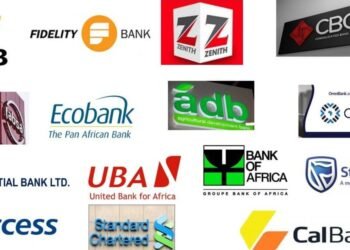The Bank of Ghana warned that the renewed threat from the second-wave of the COVID 19 pandemic has heightened uncertainty and could hamper Ghana’s recovery process in the near-term.
Although growth has picked up since the sharp contraction of 3.2 percent in the second quarter of 2020, the central bank has cautioned that the resurgence of COVID-19 infections around the world has elevated uncertainties in the outlook, posing significant risks to the pace of recovery in the Ghanaian economy.
“All the high-frequency indicators of economic activity have rebounded, consumer and business confidence levels are back at pre-lockdown levels, and there are indications of steady growth in private sector credit”.
The Bank of Ghana’s updated Composite Index of Economic Activity (CIEA) recorded an annual growth of 11.9 percent in November 2020, compared with 3.4 percent growth a year ago driven by the construction, port activity, imports, manufacturing, and credit to the private sector.
Results from the Bank’s latest confidence surveys conducted in December 2020 showed improvements in both consumer and business confidence.
Consumer confidence remained firm at pre-lockdown levels reflecting optimism about current economic conditions following the gradual lifting of the COVID-related restrictions.
Business confidence also improved significantly in December 2020, reaching pre-lockdown levels, for the first time, as businesses met short-term company targets and expressed positive sentiments about growth prospects.
The positive growth prospects in the Ghanaian economy perfectly reflects current global economic conditions.
Conditioned on a successful vaccine rollout across various countries, a gradual relaxation of the containment measures, and assured policy support, the Central Bank expects the positive growth prospects in the global economy to trickle down into the Ghanaian economy.
The Central Bank is optimistic that when well-coordinated, these will help support the much-anticipated global growth rebound in the second half of 2021. The Banker to the Government of Ghana also expects these conditions to foster accommodative near-term monetary policies in Advanced Economies, and trigger a search for yield in Emerging Market and Developing Economies with strong fundamentals.
It, however, cautioned that rising debt in the economy poses risk to investment in the Ghanaian economy.
“Rising debt vulnerabilities in emerging market and frontier economies, including Ghana, on the other hand, pose significant risks and could potentially worsen investor risk appetite. These conditions will require managing fiscal risks in the outlook for the Ghanaian economy”.
The resurgence of the coronavirus also poses a major risk to inflation. Headline inflation eased from 10.1 percent in October to 9.8 percent in November and then, subsequently rose to 10.4 percent in December 2020.
The inflation uptick in December last year was mainly driven by food inflation, which moved up to 14.1 percent from 11.7 percent in November 2020.
Conversely, Non-food inflation, however, eased to 7.7 percent from 8.3 percent over the same comparative period. Overall average inflation was 9.9 percent in 2020.
Inflation expectations of businesses and consumers moderated whilst Financial sector inflation expectations inched up marginally in December 2020.
The Bank of Ghana expects inflation to return to the medium-term target band by the second quarter of 2021, partly conditional on corrective fiscal measures being introduced in the near-term.





















